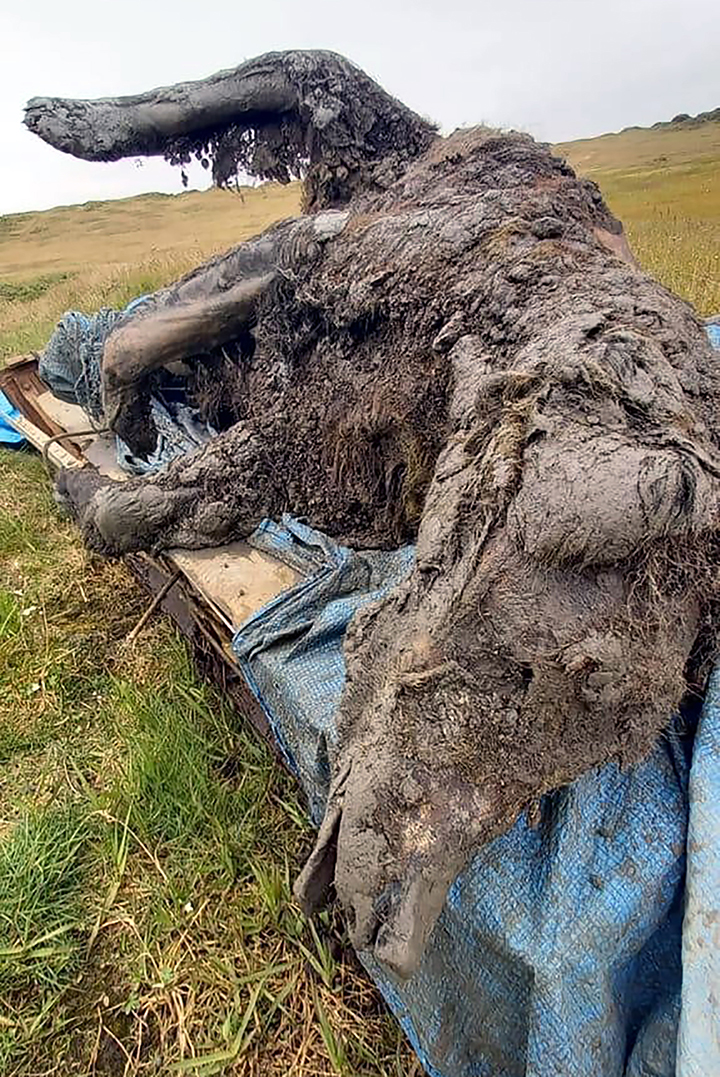Robert sent in two links. the first one is at https://siberiantimes.com/other/others/news/first-ever-preserved-grown-u… … the first ever preserved adult cave bear has been found on an island in the Arctic Ocean, one of the New Siberian islands, Bolshoy Lyakhovsky island. Even its nose is intact (see below). It died at an estimated 39,000 years ago, around the same time that Neanderthals disappeared. Previously, cave bears have only been known from bones (in caves). This specimen is a whole carcass with soft tissue intact. All its internal organs are in place – and then we have a wonderful nose (an extremity that one might think would be the first thing to fall prey to bacterial decay) ….


The remains were found by reindeer herders. The cave bear lived in Eurasia throught the Middle to Late Pleistocene period, becoming extinct roughly at the end of the Late Glacial Maximum. The carcass is still at a preliminary stage of analysis.
Robert's second link is https://crev.info/2020/09/ice-age-bear/ … where we have the Creationist angle. They ask, in the first sentence – is it credible that it died 40,000 years ago. The inference here is that the state of preservation requires a much younger date – one in keeping with holy writ. However, towards the end of the piece they add – one thing is for certain. This is not indictive of uniformitarianism (and indeed it is not). If this was a slow process, the author adds, a switch from temperate to arctic conditions, over a long period of time, animals would have been able to move elsewhere. Not only that, the carcass would have rotted. It appears the cave bear was frozen in one sudden event that caught it by surprise (and the same goes for a lot of animals pulled out of the permafrost). The phrase, climate change, is an understatement. What we have here, unlike modern global warming which is taking a long time to arrive, is instant burial and preservation in sediments. It is 'sudden' climate change, or 'abrupt' climate change – which is catastrophic (whatever might have caused it).
